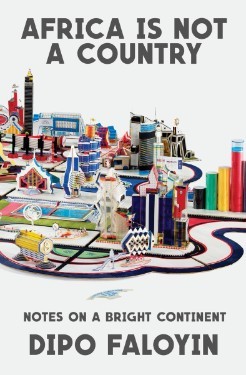Identities form specifically.
I come from a place that exists somewhere between a pot of Jollof rice in the busiest kitchen in West Africa and a living room full of revolving main characters. I delight in discussion because I am forged from my family's most consistent ritual: gathering too many people in a confined space and arguing about nothing — each person giving their opinion on each person's opinion. I was born to people with conflicting recollections of events where they were both present. I grew up surrounded by family forever complaining that someone else is not telling the story right, either in accuracy or with the requisite flair. In our home, history isn't written by the winner but by whoever speaks first.
My mother is a people person, a crowd-pleaser. She is never more comfortable than when she is uncomfortable, cocooned by unfolding events out of her control, where the solution is always a family meeting. From her I inherited by love for living in highly dense populations, ensconced in noise and all-round activity; a deep joy at being boxed in by a jukebox or experiences and an extensive bus network. My mother always stays for one more song. I always stay for one more song.
My father is an extrovert on his own terms, extremely at ease in his own skin, with an urgent need to just be. His current pace is a counterweight to motion. If he could design a perfect day, it would involve a morning nap. From him I take a tranquil disposition: things are probably never as bad or as good as they seem at first. At our fastest, we are slow walkers; at our slowest, as my sister once noted, we may as well be strolling backwards.
I am half Yoruba and half Igbo. They say Yorubas just want to have a good time and Igbos just want to have a good life, which means I am programmed, anything anywhere, to never automatically turn down an invite without, at the very least, asking some follow-up questions. I have three older sisters, which means 23 per cent of my life has been spent mourning the points I wish I had brough up in a long-finished argument.
I come from a confusingly sublime matrix of who is actually a blood relative, and a deep appreciation of heat, both in taste and touch, and the healing powers of pepper soup. I was raised with a strong belief that it is an aunty's duty to mind your business and that is it impossible to have too many cousins — two concepts I'm triggered to defend. I am from a home with an open-door policy. I am from a belief that to visit our home is to eat at our home, because food is the ultimate love language; food forgives sins and dispenses grace.
I was raised to get up early for church and stay up late for election nights. I am from a family that has never willingly gone on a beach holiday, and values intuition over organisation; a home where decisions are based on emotion rather than practicality. A strict childhood diet of arriving at events and airport too early has made me allergic to arriving at events and airports too early. Bedtimes were set, as was the understanding that children should be heard.
